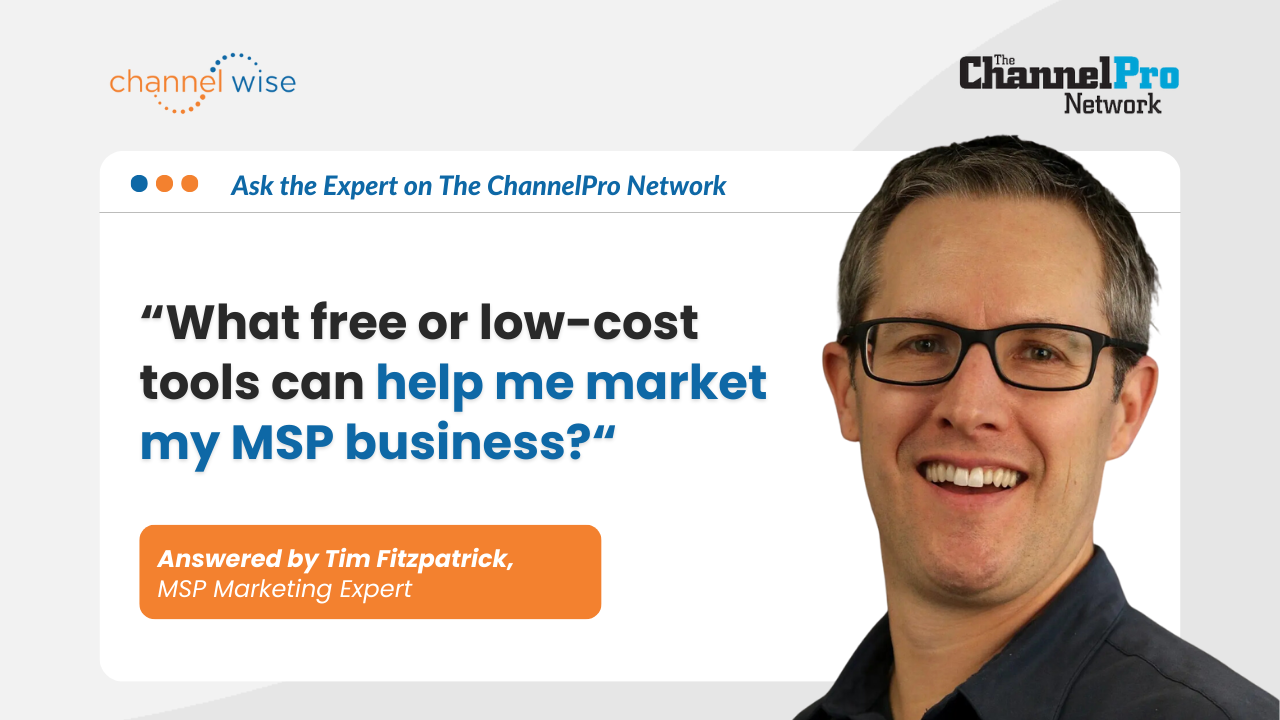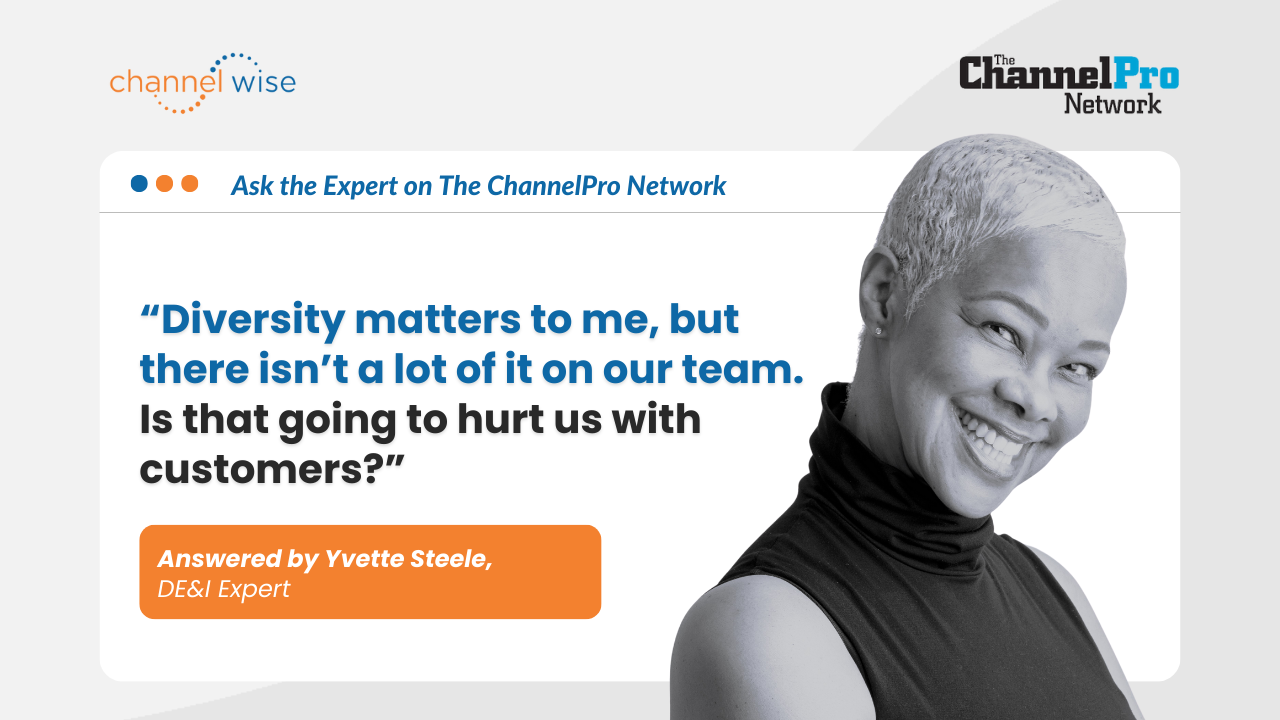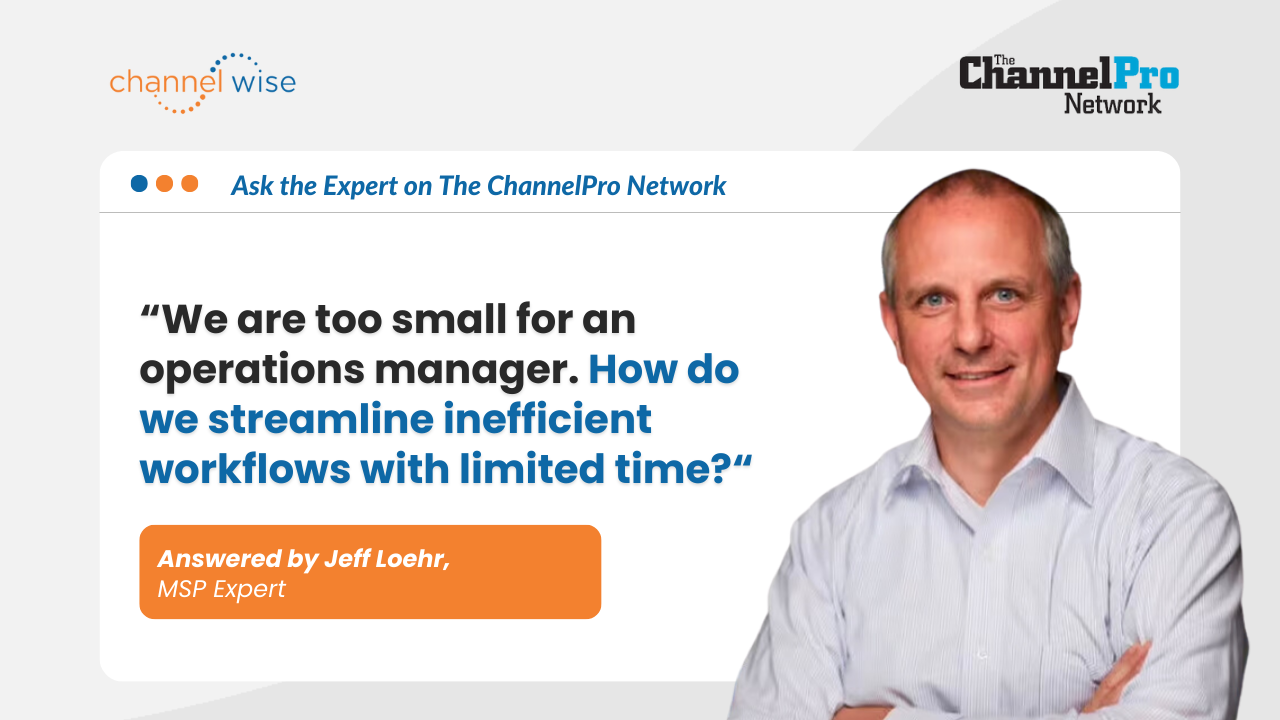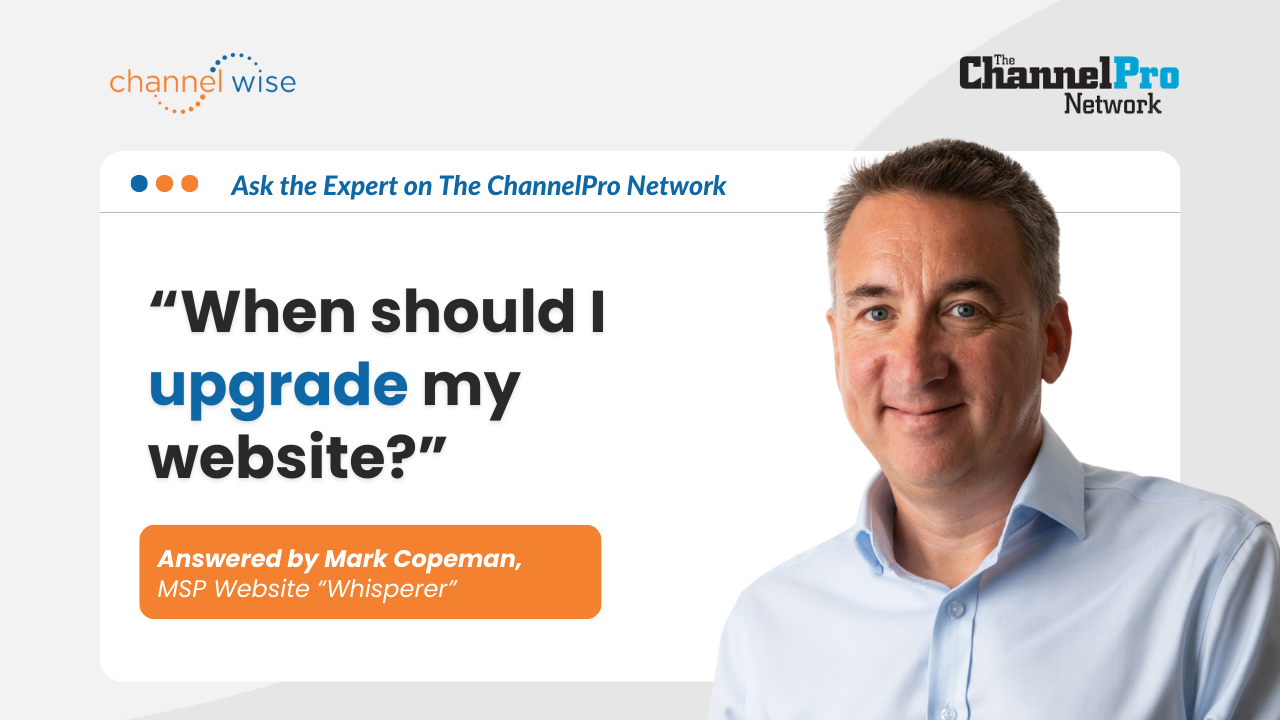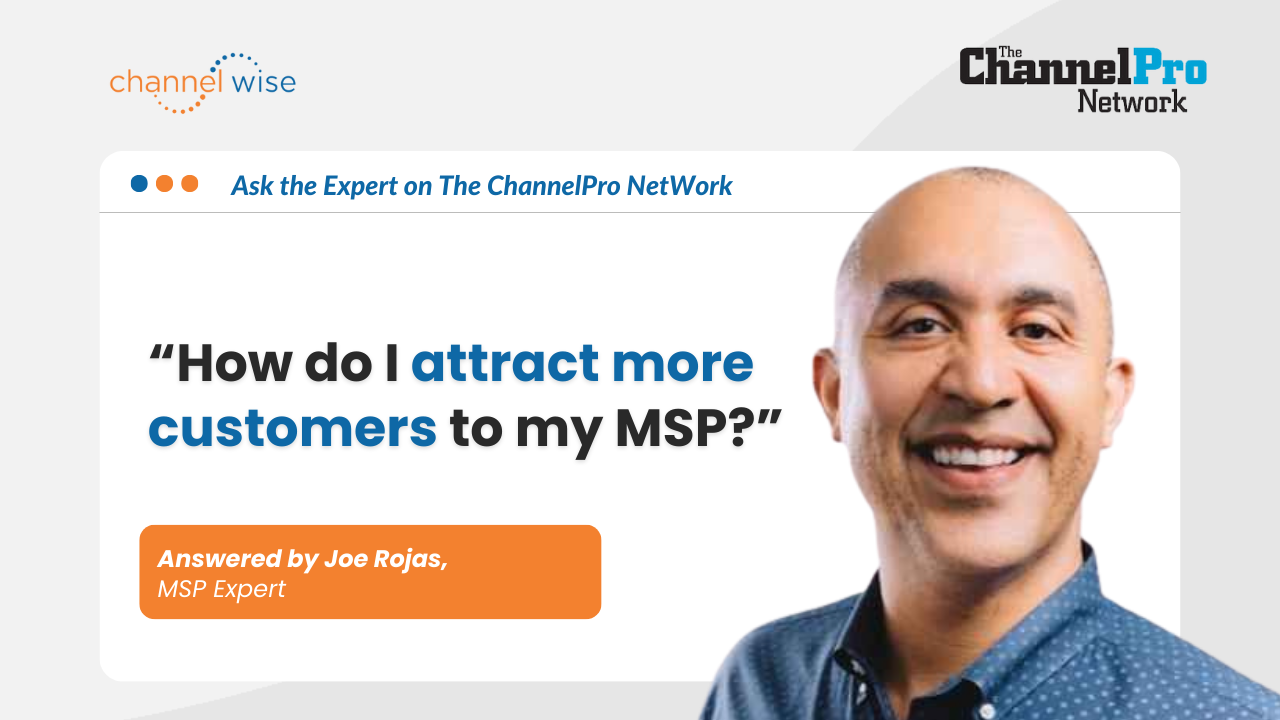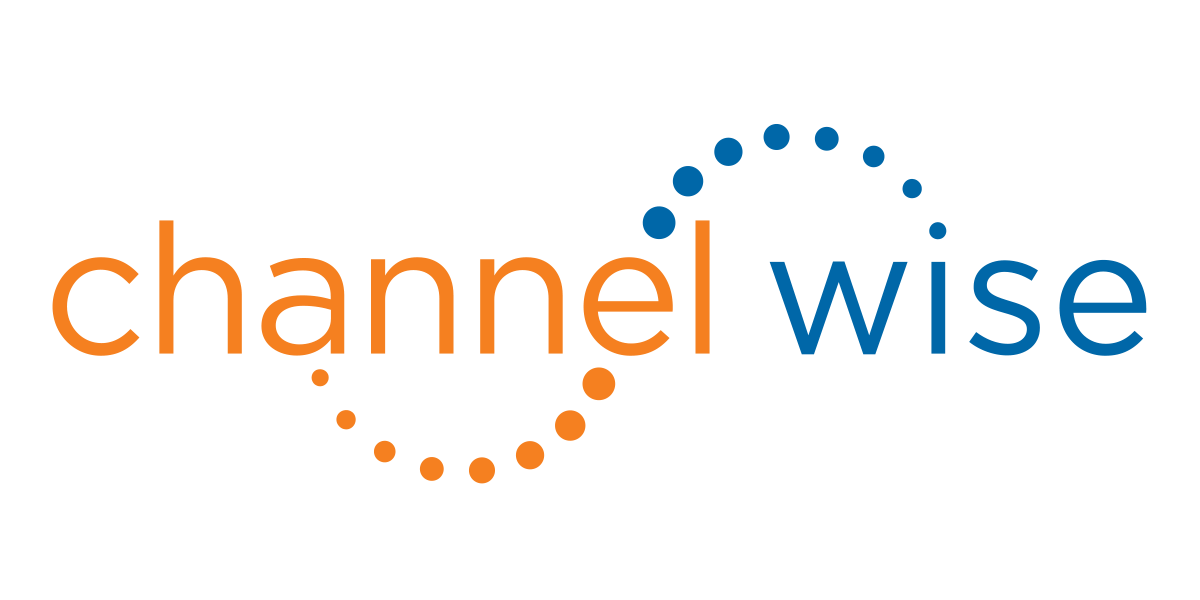Why Your Cybersecurity Sales Are Failing
Replay:
For Managed Service Providers (MSPs), one of the greatest challenges lies in transitioning from a technology-centric mindset to mastering the nuances of sales and marketing. This shift is crucial for MSP owners who have excelled in the technological aspects of their businesses but now face the distinct challenge of developing and implementing effective sales strategies. Kathryn Rose, CEO and founder of ChannelWise, delved into this topic with Jennifer Bleam, a Cybersecurity Expert and Sherpa, to explore how MSPs can navigate and succeed in this new terrain, particularly in the cybersecurity domain.
Highlights:
- Focus on the business benefits of technology, rather than just the technical aspects, in sales discussions.
- Develop replicable and scalable sales processes to ensure each interaction moves towards a specific goal.
- Address the unique challenges of selling cybersecurity solutions, shifting from traditional managed services sales approaches.
What challenges do MSPs face in transitioning from a technologist mindset to a more business-oriented approach, particularly in sales?
MSPs, being natural technologists, often fall in love with the technology itself. They vet solutions thoroughly, which is great, but the challenge arises when they enter a sales conversation. They must adapt and switch from a tech-focused mindset to a business one.
For instance, when speaking to an attorney, the focus should be on how the technology benefits their business, not the technical details like AI or machine learning. MSPs must remember their clients might not share their enthusiasm for the technology’s features; instead, they care about how it benefits them in practical business terms.
How do you help MSP owners, often the primary salespeople, develop and replicate a sales process that can scale with their business?
MSP owners, who are technologists at heart, tend to love standard operating procedures (SOPs) and logical flows in their technical work. However, they often struggle with applying similar processes to sales and marketing. I guide them to see sales as a flow chart or an SOP.
It's about defining clear steps in the sales conversation, understanding how long each part should take, and what the end goal of each interaction is. Whether it's securing a commitment for a security audit or setting up an assessment, each sales interaction should have a clear objective. It's about guiding the salesperson to understand where they're trying to get with each conversation, ensuring every step moves the prospect towards that end goal.
Why did you choose to focus specifically on cybersecurity sales in your book, 'Simplified Cyber Security Sales for MSPs,' rather than general sales?
The focus on cybersecurity sales came from a real need. A few years back, while working for a cybersecurity vendor, I noticed MSPs loved our solutions but struggled to sell them. This issue became a crucial part of my role in sales and marketing. I realized that MSPs had years of experience selling managed services and break-fix, but cybersecurity was a new terrain for them. The challenge was in rewiring their sales approach to suit cybersecurity solutions. The ROI conversations and value propositions are different in cybersecurity. My book aims to bridge this gap, offering specific guidance on objection handling and unique cybersecurity sales talk tracks. It's tailored to address the unique challenges in selling cybersecurity solutions, which were not being adequately covered elsewhere.
What are some common mistakes MSPs make when presenting their cybersecurity solutions?
One major mistake is getting too technical in their presentations. Another frequent error is selling point solutions, especially to incumbent clients, instead of offering a comprehensive package. This piecemeal approach can result in a client always playing catch-up with cybersecurity needs.
A significant misunderstanding is assuming clients know as much about cybersecurity as the MSPs themselves. Many clients, like accountants or attorneys, might not be as informed about cybersecurity threats and solutions. It’s not that they don’t value cybersecurity, but they might simply be unaware of the risks. MSPs need to approach these clients with an educational mindset, aligning the conversation with the client’s level of awareness and gradually guiding them to understand and appreciate the full extent of their cybersecurity needs.
How can MSPs balance the conflicting goals of vendors focusing on acquiring new logos and their own need to expand within existing clients, particularly in relation to Marketing Development Funds (MDF)?
This is a complex issue. While vendors often push for their solutions to be deployed across all endpoints an MSP manages, the reality can be quite different. It's crucial for MSPs to be adaptable in their roles, understanding both the ideal scenario and the actual situation on the ground. The ideal might be full deployment of a vendor's solution across all endpoints, but in reality, there may be clients who can't or won't use that solution. MSPs need to embrace this reality and have open dialogue with vendors to bridge this understanding gap. It's not about being a bad partner if you don’t achieve 100% deployment; it's about aligning expectations with the real-world scenarios of MSPs and their clients. More conversation and mutual understanding are needed in the industry to resolve this.
Why was it important for you to be involved with channelWise, and how do you see yourself and your audience using this platform?
Joining channelWise was important for me because, while I have a group coaching arrangement for ongoing client relationships, many might just need a single session to tackle a specific issue. For instance, someone might have a stalled pipeline or need advice on laying a solid foundation for a new business. These are tight, focused problems that can often be resolved in a single, targeted consultation. channelWise is ideal for these scenarios. It's not just for those who need long-term coaching but also for those looking for immediate, practical solutions to specific challenges. Whether it's refining a sales process or starting with the basics of a marketing plan, channelWise offers a platform for addressing these varied needs in a concise, effective manner.
For more advice about international expansion, visit
Jennifer's profile on channelwise.
Check out channelWise.com to find more experts to help you with your business or career.
Note: Transcript is edited for time and clarity.
